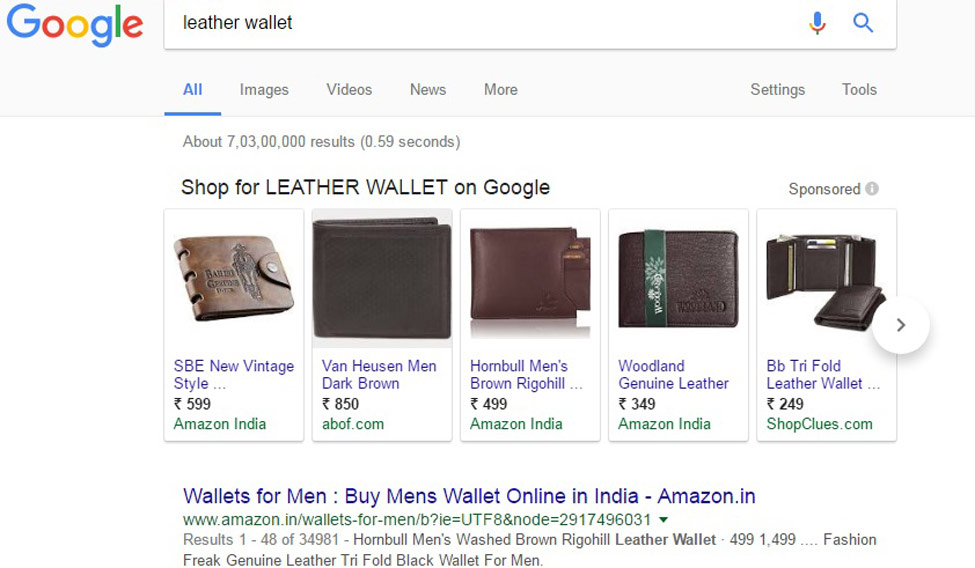What if you want to buy, let's say, a leather wallet and are not sure where to look for good ones? You Google it, of course. The search throws up several options where different wallets from various e-commerce portals pop up. From here, you can choose the one that suits your interest. This is, in fact, Google's own shopping service—Google Shopping. This shopping service has been dealt a major blow now, with the European Union imposing a record fine of $2.7bn on the company.
The European Competition Commission ruled that the company had manipulated search results to promote its own shopping service at the top of the search results. The ruling hopes to end 'anti-competitive' practices by the company, which has faced flak from other countries over the last few years.
Why it is anti-competitive
When you search for that leather wallet, Google Shopping displays images and prices of relevant products, along with the names of e-commerce portals they are available from. If available, ratings of the products are also shown.
We might just click on one of those links without pondering over it much. We may not even have noticed the word 'sponsored' written on the top right corner. This means that these search results, unlike other normal search only include items that have been paid to appear.
The number of these shopping search results have grown over the years. In fact, very often, the organic search results come farther down the page below the ads. Studies have shown that the number of clicks on Google Shopping ads have increased considerably. In fact, shopping ads represent about 74 per cent of all ads clicked on Google. And Google's monopoly in content and search engine, plays a decisive role in what people purchase, too. Hence, there has been a hue and cry against the search engine's advertising practices.
Anti-competitive charges in other countries
The European Commission had been investigating Google Shopping since 2010, based on a complaint by tech rival giant Microsoft. Google has had a tryst with other countries, too.
India: In 2015, India''s competition watchdog—Competition Commission of India—accused Google of abusing its dominant position in online search. The case has not yet been closed. In February this year, BharatMatrimony filed a complaint against Google alleging that it was misusing the AdWords programme. The AdWords programme, in which Google sells keywords to advertisers and displays them as online advertisements, is a big money spinner for Google.
US: In the US, Google faced anti-competitive charges from as early as 2007, when competitors pushed the Federal Trade Commission to investigate Google's online advertising. However, in 2013, the FTC dropped the probe against Google and concluded it has bot-manipulated search results.
Brazil: In Brazil, too, Google faced similar charges in 2013, which forced an investigation into Google's advertising activities.
Russia: Like the EU, in Russia, too, Google faced a major blow. Over two years ago, Russia's largest search provider Yandex, filed a complaint against Google's monopoly over advertising and violating competition rules. In April this year, Google reached a $7.8-million settlement with Russia's Federal Antimonopoly Service agency.






